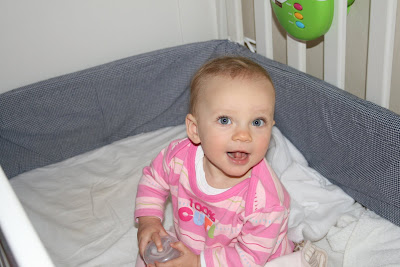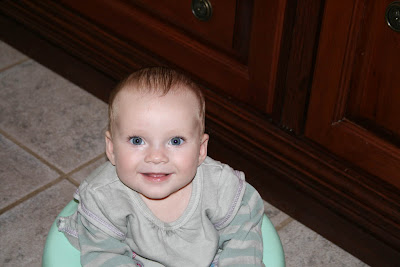For those to whom the title sound vaguely familiar, I am borrowing it from a lady called Elizabeth Kubler-Ross, whose book of this same title has been staring at me from my desk from underneath a steadily thickening layer of dust, for the last (yes, you guessed it) three months.
Do I remember myself saying distinctly that children with cancer are not busy dying? Maybe I should reconsider such a bold statement...
In January, my second week at oncology, I was working in the very busy and sometimes chaotic oncology outpatients clinic (a small stuffy room in the back corner of the ward that can get quite claustrophobic with patients, mothers and doctors competing for the last gulp of fresh air). Most of the patients who were diagnosed the last few months of 2008 and had spent a few weeks/months in the ward were sent home for Christmas, and most of them came in those first two weeks of January to be readmitted to continue on whichever protocol of management they were busy with over the festive season. All of the readmitted kids needed bloods to be taken, forms to be filled in, treatment to be planned... Suffice to say it was a very chaotic outpatients clinic and I was hopeless and cluelessly stuck in the middle of it (luckily with a very helpful and unusually mild-tempered consultant). Into the midst of this chaos one afternoon entered a very worried-looking young lady (maybe around 20 years) with her younger sister who, at first glance, needed immediate attention. She was as white as a sheet.
Now just for background, I did my internship in a secondary hospital and spent 4 months in O+G. After I had spent a bit of time diagnosing and resuscitating women with ruptured ectopic pregnancies, I acquired the sometimes impressive ability to quite accurately predict a haemoglobin (Hb) count. Younger doctors and students tend to look at you as if you are going mad when you predict an Hb of 4 or even 3 (normal is around 12) - they do not expect the patient to still be alive and kicking with such a low count. In O+G I saw a few ruptured ectopic pregnancies causing massive intra-abdominal bleeding and very low Hbs. And (unlucky me!) on day one of my gynae rotation in internship I learnt that when you see a patient with such a pale tongue, you run. Not as in run away, but as in run to the blood bank/ emergency blood freezer/ wherever you can find blood urgently. As in URGENTLY.
So on this afternoon, in the madness of oncology outpatients, the very worried older sister quickly explained that the patient (10 years old) had been treated in 2005 for a cancer found somewhere in her abdomen. They came in with her old file, impressively thick, and said that she was feeling a bit dizzy... And yes, you guessed it (again), when I asked to see her tongue I felt my stomach roll into a tight ball and my brain just saying "run! run! run! blood bank! emergency!!"
Her tongue was the same colour that I remembered so clearly from those ectopic pregnancy days. I told the intern with the little authority I could muster (after she had been watching me for two weeks basically being clueless and helpless in a new ward) "this patient has a Hb of 3! we need emergency blood!"
Obviously it was not quite the same as someone with a ruptured ectopic pregnancy who is actually busy losing blood into the abdominal cavity, but I think all the times I resuscitated those patients came in handy. Before long my patient, lying on the bed with big, scared eyes, was receiving the first of three units of blood and I had time to listen to the story and open the file.
This little girl was initially diagnosed with an ovarian germ cell tumour in 2005. It was successfully treated and managed and she was discharged with a clean bill of health after completing therapy. However, in the course of the management, she had received a lot of strong, very toxic chemotherapy. And now it seemed as if she had leukaemia.
An urgent full blood count with blood smear confirmed the presence of a massive predominance of blast cells, and a bicytopaenia (with the very low Hb she also had very low platelets, which could cause her to bleed from basically anywhere). Her Hb, in fact, was even lower than my confident prediction - is was 2.5. Eish. An urgent bone marrow biopsy confirmed acute leukaemia, the type fitting with the presence of DNA damaged cells (the damage obviously caused by her previous chemotherapy). This beautiful little scared, big-eyed girl had another cancer. Yes, you heard me correctly, she was 10 years old at the time and had just been diagnosed with cancer for the second time.
Treatment was commenced immediately, and early in February I assumed the responsibility of looking after her daily progress in the ward (instead of struggling through outpatients I was now promoted to being responsible for all the patients in the ward with leukaemia or lymphoma). From the first day I realised that this girl was different. She had a way of looking at you that was way beyond her years. She was always friendly, full of jokes, and willing to help. But underneath all the jokes she was really mature and perceptive for her age. Before long we surprisingly found that we had become close friends. Yes I admit that I saw the danger and possible pain of getting emotionally involved but I could not help it - we were just on the same 'wavelength'. We understood each other, we talked about the future and future plans, she joined me on ward rounds, we talked some more, we had a picnic under the big tree opposite labour ward to celebrate her 11th birthday...
She did relatively well through her first two cycles of chemo, and completed the third cycle this week Tuesday. Then on Wednesday she started having convulsions, yesterday morning she could not see properly anymore, and today she cannot walk on her own anymore. The CT scan of her brain showed nothing much, no obvious tumour, but she is rapidly deteriorating.
Suddenly I am not just a doctor in the ward, I am a friend who worry and worry and wipe away a tear now and then, trying to remain outwardly professional while inside I am heartbroken.
Is she dying? I do not know. But she may be. And she is going to. Her prognosis is poorer than the other leukaemia patients, considering that her cells are damaged by the previous chemotherapy and mutate just so much easier. Just the other day after saying goodbye I watched her little forlorn figure skipping back down the corridor to the ward, turning around to wave goodbye with a smile stretching from ear to ear. Now, that cloaked figure with his scythe (the one that Axel Munthe* and Marcus Zusak* described so well) was hovering ever closer...
I just hope that the companionship we shared the last few weeks and the little love I can still give will make a small difference - even if just to help her accept the inevitable.
* Two of my favourite books of all time "The story of San Michele" - Axel Munthe, and "The Book Thief" -Marcus Zusak































